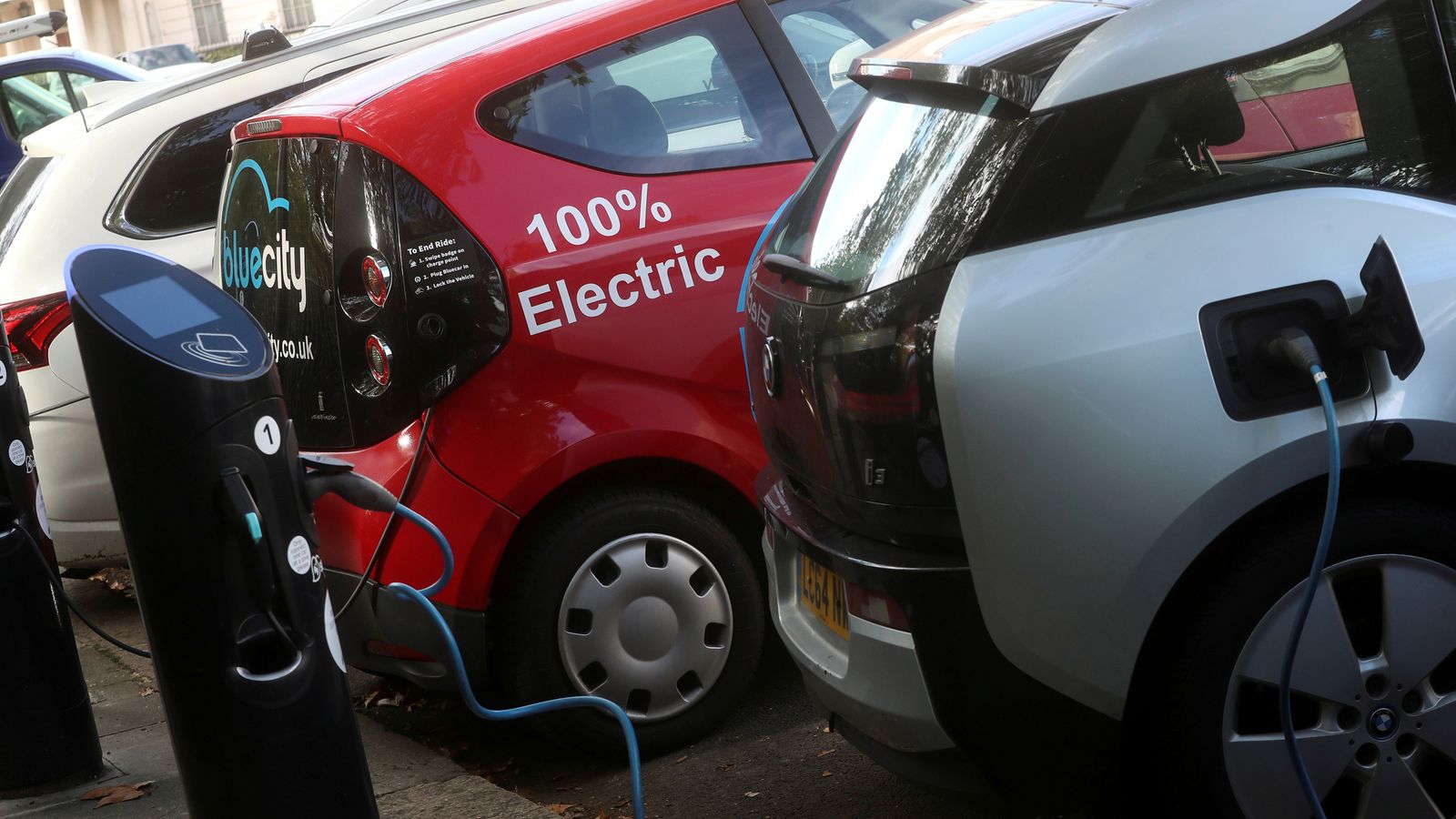The car industry has criticised a government decision to cut taxpayers subsidies for electric vehicles and scrap help for those costing more than £35,000.
Grants of up to £2,500 will be available for plug-in cars – down from a previous £3,000.
The scheme previously excluded vehicles costing £50,000 or more.
Ministers first introduced a grant scheme in 2011 worth up to £5,000 to encourage people to switch to low-emission cars but this has gradually been reduced and seen eligibility narrowed.
The government said the latest change meant that the funding will last longer and be available to more drivers.
Grants will no longer be available for higher-priced vehicles “typically bought by drivers who can afford to switch without a subsidy from taxpayers”, it said.
But Mike Hawes, chief executive of the Society of Motor Manufacturers and Traders (SMMT) said the latest decision was “the wrong move at the wrong time”.
He said: “New battery electric technology is more expensive than conventional engines and incentives are essential in making these vehicles affordable to the customer.
“Cutting the grant and eligibility moves the UK even further behind other markets, markets which are increasing their support, making it yet more difficult for the UK to get sufficient supply.
Please use Chrome browser for a more accessible video player
“This sends the wrong message to the consumer, especially private customers, and to an industry challenged to meet the government’s ambition to be a world leader in the transition to zero emission mobility.”
The Department for Transport (DfT) said the number of electric car models priced under £35,000 had increased by almost 50% since 2019 and that more than half those currently on the market would be eligible for the grant.
It said it had been clear since 2018 that it intended to reduce the grant and that since the scheme first launched in 2011 there had been a steep fall in battery costs.
The DfT said £1.3bn had been spent on plug-in vehicle grants since 2011 and transport minister Rachel Maclean said the level of funding would remain as high as before.
But she added: “Given soaring demand, we are refocusing our vehicle grants on the more affordable zero emission vehicles – where most consumers will be looking and where taxpayers’ money will make more of a difference.”
UK new car sales fell 29% in 2020 to their lowest level since 1992 according to SMMT figures, blamed on showroom closures caused by the pandemic.
But demand for battery and plug-in hybrid vehicles continued to grow, growing t0 nearly 11% of the market.






















